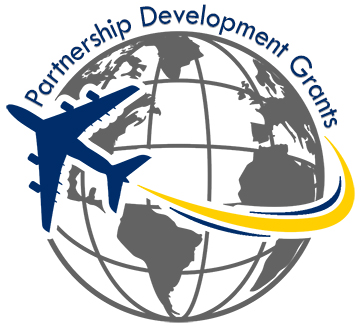
Improving care for Alzheimer’s patients in Zambia. Studying cognition among teens living with HIV in Ghana. Expanding optometry services in Kenya. Exploring cutting-edge heart muscle regeneration techniques with partners in Israel.
Global REACH is pleased to announce the latest awardees in our Partnership Development Grants program. Offered twice a year, the awards provide up to $10,000 in seed money to launch new meaningful research collaborations between UMMS faculty and counterparts abroad. Below, find details about the four newly funded partnerships. The next round of grants will be offered in the fall.
Establishing the Zambian Cohort of Healthy Aging and Dementia Partnership
UMMS PI: Melissa Elafros, Neurology
Partners: Chipata General Hospital, The University of Zambia, and various stakeholders
The Zambian Cohort of Healthy Aging and Dementia (Z-CHAD) Partnership is a proposed collaboration between clinicians, academics, and public health officials in Zambia and the United States to address an identified need: effective development and implementation of interventions for people living with Alzheimer's Disease and Alzheimer's Disease Related Dementias (AD/ADRD). A coalition of experts, including one of the country’s first trained neurologists, aims first to conduct a population-based study to determine the prevalence of cognitive impairment in adults in and around Lusaka, the Zambian capital.
Ghana-Michigan Partnership for the Study of Cognition and Behavior in Adolescents with HIV
UMMS PI: Bruno Giordani, Psychiatry
Partner: Komfo Anokye Teaching Hospital, Pediatric Infectious Diseases
Across sub-Saharan Africa, HIV survival in childhood has markedly improved, becoming a chronic life-long illness with life expectancy approaching that of the non-infected population. As such, the focus of care has transitioned from preventing mortality to management, including the potential to develop substantial HIV-associated neurocognition impairment. Dr. Giordani’s partner, Dr. Charles Martyn-Dickens, is a pediatric infectious disease specialist who runs a program to transition HIV+ adolescents between pediatric and adult care. Their project aims to determine factors associated with the neurocognitive status of HIV+ adolescents via a study of patients being treated at KATH. The knowledge to be gained has practical implications for activities of daily living, formal and informal education, as well as policy implications for comprehensive HIV care.
Medical Contact Lenses, Low Vision Rehabilitation, Corneal Crosslinking: Kellogg Eye Center and Kisii Eye Hospital, Kenya
UMMS PI: Sherry Day, Ophthalmology
Partner: Kisii Eye Hospital
This project aims to expand existing institutional collaborations with Kisii Eye Hospital into new areas through subspecialty training focused on corneal disease diagnosis and treatment. An initial aim will be to provide basic training in specialty contact lens care—training that is not currently available in western Kenya. UMMS optometrists plan to enhance the knowledge of their Kissi counterparts in the areas of diagnosis and management of corneal diseases, with a focus on specialty contact lens fitting and care. Such medical contact lenses can address a common cause of preventable vision impairment in local teens and young adults.
Stimulating cardiac reprogramming with multi-functional protein-based matrix
UMMS PI: Zhong Wang, Cardiac Surgery
Partner: Technion Israel Institute of Technology
Direct reprogramming of fibroblasts, a very common cell type in connective tissue, into cardiomyocytes-like cells, the muscle cells that comprise heart muscle, has emerged as an attractive strategy to repair damaged hearts. This type of reprogramming is a focus of Dr. Wang’s lab. However, precise delivery methods in injured hearts present significant challenges for its clinical applications. Dr. Wang’s partner at Technion, Dr. Nadav Amdursky, is developing a new king of matrix/scaffold for regenerative medicine using serum albumin proteins derived from donated blood. The partnership will test whether the protein-based matrix can serve as an effective gene delivery reagent in promoting and supporting successful cell reprogramming.
